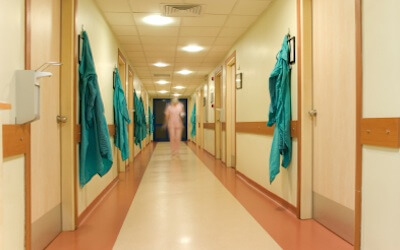The Match process can be confusing. Many students receive minimal instruction from their medical school and are often left feeling overwhelmed.
However, with some understanding and adequate research to learn more about what may appear to be a very long and difficult process, many students can actually acquire a comfortable residency position in their field of choice.
Read more: An assistant dean for career counseling offers advice for making your medical residency application shine
The most important factor in the National Residency Matching Program is timing and preparation. While many students often put off deciding their specialty of choice until right before the ERAS opens on September 1, it is essential to have the career choices narrowed down to the top two or three specialties at the beginning of the fourth medical school year. In doing so, students are then able to pinpoint the institutions they would prefer to attend in the location they desire. This can be done by utilizing the Fellowship and Residency Electronic Interactive Database (FREIDA) and selecting the Program Search link. Once you arrive at the site, you can select the specific criteria you have in mind, including location, specialty of choice, and others. Doing this ahead of time allows for more specific planning, including giving you the chance to contact any medical education department to schedule a “visiting medical student elective.”
Do not underestimate the opportunity to work as a visiting student at any facility, as giving the faculty a chance to see you in action can be of great benefit. Also bear in mind that if you do not adequately prepare and apply for these electives in advance, little time will be left to schedule these available rotations and to receive the letter of recommendation that you need. Letters of recommendation are essentially the backing of faculty members who support you in your endeavor to be a physician.
A letter of recommendation from a resident or fellow does not hold as much weight as a letter from an attending physician. Overall, however, a letter from a program director would be best. In addition, a more specific letter indicating how you are well-suited for the particular specialty that you desire as well as those letters that relate personal experiences are more profitable than a generic letter. Most institutions require at least three letters, with one letter from a faculty member in the specialty you desire.
Another piece of the puzzle that often causes anxiety during the fourth clinical year is the USMLE Step 2 examination. The USMLE examinations are the most important factor in determining if you are adequately prepared to handle the rigors of residency. If your school has not already arranged a schedule for you to adhere to, try to schedule the USMLE Step 2 CS as soon as you feel that you have received adequate history taking skills. Some students feel comfortable after completing one core rotation, while others may feel that they need two or three.
Finally, after completing the bulk of the work and receiving most of the letters of recommendation, completing your Step 2 examinations, and deciding the specialty that you prefer as well as your desired location, you may sit and write your personal statement. General advice for the personal statement are:
- Keep it within one page
- Include personal information regarding why you chose the field
- Explain what you are looking for in a residency position
- Describe what you can provide to the institution
Try to have all these documents ready for ERAS when it opens up on September 1. This gives the residency program directors adequate time to review your credentials and to possibly invite you to an early interview. Ultimately, try to avoid applying late if possible. Good luck, and remember to plan early!
More on medical residency applications
Selection chairman on medical residency application missteps
More residency application advice from a professional
Improving your medical residency application interview skills
How competitive are your USMLE scores?
How to handle Couples Match
What to do if you don’t match
Putting together your rank order list
References
1. Electronic Residency Application Service (ERAS).
2. Fellowship and Residency Electronic Interactive Database (FREIDA).
3. National Resident Matching Program (NRMP).
Topics #eras #essay #essayedge.com #financial aid #kaplan #match #medical school #medical school admissions #medical schools #medical student #medical students #national residency matching program #nrmp #personal statement #princeton review #residencies #residency #residency match



